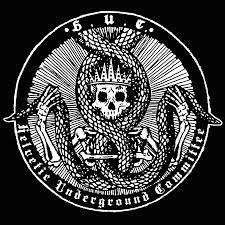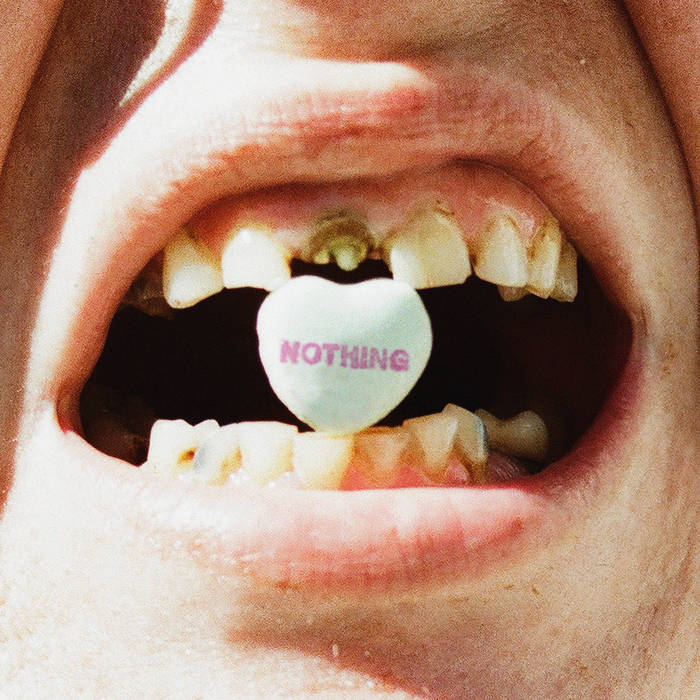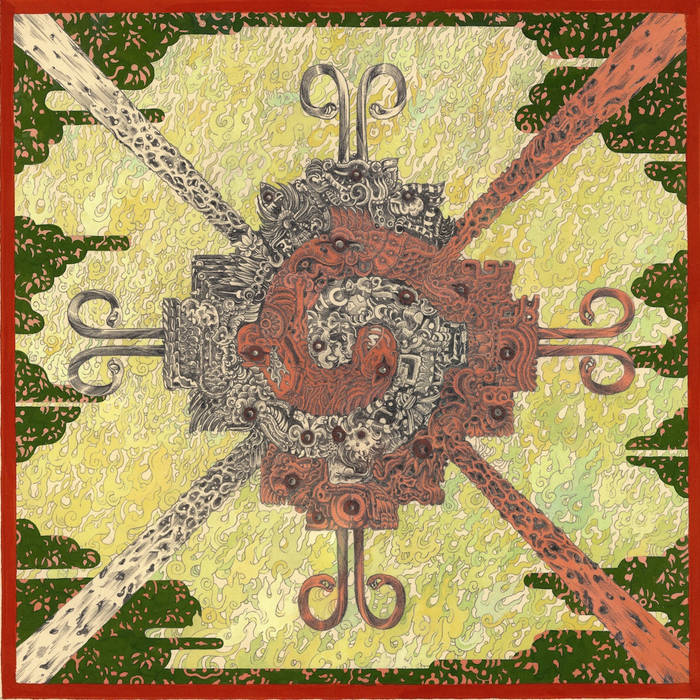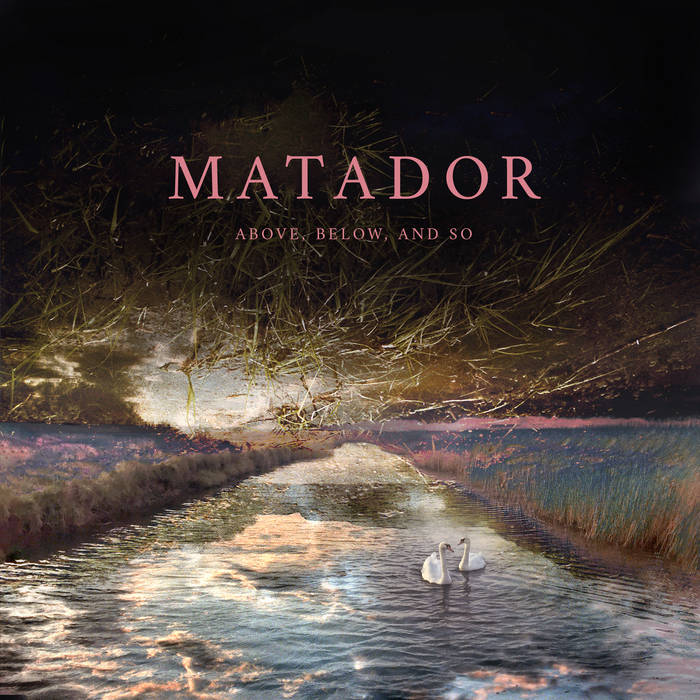In our second and long overdue edition of Scene Reports we share a lengthy interview with one of Europe’s most exciting black metal circles and have a close look at some of their most important acts and records.
Scene Report #2 The Helvetic Underground Committee (H.U.C.) from Zurich, Switzerland
Over the last years we have seen quite a change in modern black metal, a change in sound, in production, in outward appearance (aka stage costumes), in attitude and seriousness – and in a symbiotic collaboration of several bands, some loosely connected by one or two musicians playing in several bands or others collaborations under the roof an overall “scene identity”. Two scenes coming to mind are the Haeresis Noviomagi-scene from the Netherlands (think of Turia, Iskandr, Nusquama, Fluisteraars) and the circle in St. Petersburg, Russia (Trna, Show me a Dinosaur, Olhava). Interestingly, both circles release their vinyl editions through Eisenwald which is also the home to a large part of another brilliant example of a modern black metal scene – the Helvetic Underground Committee from Zurich, Switzerland. While Haeresis Noviomagi has a real “corporate identity” (even going as deep as seemingly sharing the same paper and design for several releases – just compare the Nusquama and Solar Temple covers), the St. Petersburg-scene has a very similar way of structuring songs throughout their releases. Comparable to the group around Andrzey Nozihilov, the HUC has a unique sound which may stem from the fact that although we are talking of roughly more than ten bands (or projects as the collective would call them) there is always a certain “The Crypt”-sound to their records. Another impressive trademark of the HUC is the fact that even though there are less than ten human individuals involved in the collective and each record is basically written and recorded at their own lair (“The Crypt”) every project has something very unique although one might think that there would be limits to the number of combinations and ideas.
Kerberos who is involved in a few of the projects himself gave us a lengthy interview and, based on it, this article shall shed some light on this unique and highly interesting black metal scene from Central Europe and the way they see their work (also have a look at what they have to say for several of the projects), their approach to writing music, the Swiss background of the project, their attitude towards religion and the close-knit-character of the group which also wants to remain anonymous and will thus be addressed impersonal or via their stage names.
I would like to know what a normal evening in the “Crypt” looks like? Is there even something like a “normal” evening? The Crypt fulfills many different functions; first of all it’s the place, where we record the music for all our projects. Moreover, it is also our rehearsal space, where we rehearse for the recordings as well as for live shows. But the Crypt is also a space where various ideas and concepts are shared and discussed, for projects or also other things. Nevertheless, music must not always be the focal point in the “Crypt”, often we also just meet for a beer or listen to music. However, the “Crypt” is definitely and will always remain the most important place for the HUC, as long as our rental contract isn’t cut off.
Humour – how important is that for you as a circle and to what extent is it important for your presentation to the outside? When it comes to how we present ourselves to the outside world humor basically is not important at all. It’s not our aim to be funny or to amuse other people. We want to support and engage in high-qualitative music. Nonetheless, some of us display a tendency to be witty and ironic on social media, which also expands beyond these projects but not onto the HUC itself. I do not, however, talk about the internal procedures of the HUC.
Are there certain places or clubs apart from the «Crypt» that are important for your collective? Certain persons? We cherish the people that support us in the production and distribution of our music, for example the labels, that collaborate with HUC-related projects. Otherwise, no.
Kerberos, – hypothetically speaking – might it be possible that the H.U.C. will ever approach or include another person in order to have him or her working with you? No.
Would the H.U.C. ever include a band or a project that has no personal connection to the collective, a band in which NO member of the H.U.C. is involved in? No, that would contradict the nature of the H.U.C.
A clear, simple, straightforward sign of a collective not wanting to work with too many people, which also becomes obvious when he talks about the mastering of their recordings: We have worked with different mastering engineers. Often we worked with VK (Vassafor, Temple Nightside, etc.) for the vinyl mastering or with Greg Chandler (Priory Recording Studios). I have also taken over the mastering for several projects and by now I also do mixing and mastering for external projects. We will keep on working with the aforementioned people as they understand how we want our music to sound.
Asked about the writing process for the different projects it becomes clear that trying to find an answer that works for all of the different projects would be impossible and each has to be looked at individually (as we will do later). You said that first of all you want to create high-quality records – how must I imagine the process of writing the music? Does one of you come up with an idea and then several people work on it or is it always first-off a solo project or a duo that then reaches out to the other members of the collective for help? That differs from project to project and depends on how many people are involved in a project. All HUC-projects consist of one to three members partaking in the creative process. For some projects, it’s just person composing the music and recording the demos and then we meet to work further on these demos. Seemingly, our projects put an emphasis to find instruments that complement each other. To say it more clearly: the drums shall not do something on its own but shall support what the guitars are doing. Parallel to that, we often have clear ideas of what the drums or the bass shall sound like while composing the riffs and guitar lines. That is really helpful when writing as a duo or sometimes as a trio (depending on the project) or when bringing more concrete details to the sonic image. Sometimes it also happens that someone has a great idea during a recording session. The process of creation is indeed very flexible and primarily aimed at creating the best music possible. Another example would be certain Dakhma-songs, that were recorded in 2018 and whose drums are now played a little differently. But that is confined to some emphases and rhythmically more interesting breaks within the songs, but without changing the song as an entity itself.
How are you able to have each project remain and seem to closed? Where does the inspiration come from for now more than half a dozen projects with sometimes so diverse approaches and trademarks? As already mentioned, it’s common sense to us, that a musical project has a singular character and that this character becomes clearer release by release in a way that its musical development is organic. If every project was subdued under one homogeneous and unifying idea, it would make no sense to start any project at all. The inspiration for every single project is different, but the significance and unity is that all of them have a clear-cut conceptual foundation. [note by the author: When comparing the religiously-influenced Dakhma songs with the Swiss-folklore of Urgeyst this becomes clear].
Although there is no list online pointing out which musician is involved in which project – they are not even giving a clear number of members of the HUC – it becomes clear that (nearly) every person is involved in several of the projects. That is of course interesting when thinking about a certain HUC sound. You said, that there is no specific HUC-Sound, according to you. But does it not inevitably happen that there is a certain measure of similarities because of the overlap of the people involved. Think of tuning? Think of the recording room in the Crypt? It may well be possible that due to certain overlapping personnel one might recognize a voice as it’s the same person. But that person will use the voice differently for each project. Decisive is the overall presentation of the project, and I think that all HUC-projects are able to create an individual [musical] identity. We might also use different guitars or amps, different recording or mixing techniques. In the end it is also about encapsulating the soundscape of the project, the way it sounds in our heads. The quality of our earlier recordings might be due to the lack in knowledge of the respective artists. It was always a target for all participating projects to control the creative process of their recordings. As time passed and with more experience our knowledge and our recording skills has gained enormous amounts of quality, which has also shown in our more recent releases and especially in the recordings that will be published soon [see the special section on Death.Void.Terror below]. Production, mixing and mastering are very important for us. The most important aspect is that it sounds the way the artist has envisioned it. We support each other with technical knowledge and with recording in order not to have a low-quality mash; thus the associated projects sound differently. None of us can stand those terribly sterile, plastic-studio-recordings with, for example, all the kick-drums sounding like tiny triangles. The development towards more sterile production must be condemned and leads to a homogenization of all projects, so that a differentiation based on sound in between similar genres is hardly possible. This development has to opposed determinedly. That means for us, that we record and mix how our ears think it right. Furthermore we are not interested in working with a professional sound engineer from the outside to waste hours with explanations what something should sound like. We have decided to teach ourselves those skills as good as possible. Only for the mastering (for vinyl and other formats as well) we work with external persons who understand what we want and who can then align the reproduction of the analogue format as best possible.
Several critics see some kind of connection between the HUC and early Norwegian black metal. But Kerberos gives us a clear answer when being asked about the collective’s role models: Certain influences are of course obvious on all releases, but I think giving you a list of influential bands is not making sense. In my opinion, all the HUC-associated projects have been able to create a unique, recognizable sound and they are all trying to further develop this. (…] we have nothing to do with other scenes.
Of course, when talking about black metal, the question about politics and political stances arises quickly, also because of the history of black metal being used and abused for right-wing ideas (even a little bit more than with other musical styles) and we also talked about that. Due to the small number of people involved with the HUC, we do not need governmental ideas of organizing us, they are superfluous. All projects work autonomously and are free to choose their musical expressions or to present themselves the way they like to. As soon as a project is associated with the Committee that association implies a like-minded-ness, a similar way of thinking which then again omits discordance that would need a democratic resolution. Of course, all of that is also a result of the overlapping people involved in those different projects. Nevertheless, there are obvious differences in sound or themes and the HUC doesn’t influence where these projects publish, with whom they collaborate or if they perform live. The HUC should more be understood like a quality control trademark and not as a way of governing the projects.
But where do you place yourself politically? For us to place ourselves politically, it would first be necessary to act in a political way. But that is something we do not want to do, we aren’t interested in anything like that. We just want to make high-quality music. But as a side remark: It is questionable that nowadays so much music is associated with politics, even if these projects have shown no sign of having a shared political idea. It seems important to check, if a band or an artist has a certain political ethos, which one might regard as disgusting. That is of course also understandable as the current “dish of the day” is to be edgy, to have an affirming attitude towards extreme right-wing ideologies in order to gain a lot of (negative attention). That in itself is pretty embarrassing if you think of homo-erotic attitude of certain groups that use the disgust of the “mainstream” to derive even more attention from it and then to bicker about it on social media of having been “misunderstood”. That positioning is simply pathetic. (…) There is that idea that extreme music can also deal with all things extreme, as art is free of ideologies and restricting that freedom is against all ideas of artistic freedom. I basically like that idea as people should be allowed to choose for themselves. And questionable is also the sheer amount of false information on the web, put together by in-transparent organizations trying to show that certain artists have some kind of sympathy for right extremism. I think you should be careful about that and talk to the artists themselves.
However, could you imagine, to tolerate extreme political positions in your projects? Extreme political ideas in the idea of right-wing of left-wing extremism are without fail not tolerable in our projects, for none of us has those ideas or any interest in them. […] There is no kind of codex or set of rules one has to obey to and no kind of ritual to join the circle. It is simply impossible to join the HUC for we do not want to cooperate with people from the outside.
I also wanted to talk with them about being from Switzerland. And what that means to them as the country in the Alps holds a very special political position within the European realm and is surrounded by members of the European Union. Why that clear localization in your name – HELVETIC Underground Committee? Is that a result of a certain traditionalism or shall it proclaim a certain kind of Swiss identity? Well, geographically we are located in Switzerland, thus the name. A certain Swiss identity can be found in the topics of some associated projects, but it’s not the goal for all of the HUC.
But what does being Swiss then mean to you, apart from all stereotypes? The fact that, for example, musical projects of very difference provenience can and with different interests can co-exist close to each other without any problems. If a project with a focus on ancient Persian mythology wants to do split with another band, that focuses on old-Swiss legends, then that is also something highly “Swiss”.
Did I see that correctly that you opened a shop in Zurich a short while ago? No, the HUC itself hasn’t opened a shop: Nachtjeger (member of Urgeist, Kvelgeyst) has opened a shop named “Berggeflvster”. You can buy HUC-releases there, but we are not related in the shop itself. It rather distributes records from Black Metal, Neo-Folk or Drone artists as well as merchandise and even local specialties like meats, cold cuts, tea, liquor and beer. For more information visit https://www.berggeflvster.ch.
Most HUC-bands use dialects or clearly non-modern German. How does it happen that some tracks are in English then? The members of the HUC come from different cultural backgrounds and have very different topics they want to talk about in their music. We use the language which seems most appropriate for those. In general, we do not see any necessity to write lyrics in English, when the members of a certain band have no special relationship to that language. To use English only to support some kind of global understanding is senseless to us. If a project uses English, then you can be sure that one of the members has a personal connection to it.
Are these German or Swiss-German lyrics easier to write for you? I would say that the language used has more to do with the identity (of the project) and the topics and concepts behind that certain projects. Indeed it can be said, that German lyrics come to us Swiss more easily than Swiss-German [explanation: There is a relative difference between the German spoken in Germany and the German spoken in the German-speaking regions of Switzerland; it’s like the difference between Portuguese and Brazilian-Portuguese]. While German poetry can be found everywhere it is rather difficult to find dialect poetry because there is much less. Thus the development of high-quality Swiss-German lyrics can sometimes be much more difficult and time-consuming than German ones.
Are the dialect lyrics also an example for a certain liking of the archaic? The primitive and archaic are things that can also be found in Black Metal frequently. Those lyrics written in a dialect basically took shape in a very natural, organic way. You could have a look at Ungfell: first the lyrics were German, but when the project turned towards its focus towards Swiss folklore and fairytales a parallel shift towards Swiss-German happened because everything else felt not right. Of course that isn’t just connected to certain mental attitudes evoked by linguistic localities but also to the associations which that language evokes. Therefore, if the lyrics sound archaic or primitive than that is the result of a very natural process and a nice side-effect of a creative decision. […] It would not be fake (or in-authentic) to write lyrics in German and finally be a creative, artistic decision for a certain sound aesthetic. With Ungfell, Swiss-German will dominate the lyrics simply because that just happened organically and is beneficial to the concept of the band.
You are aware that you have a “unique selling point” with that? We are aware of that, yes. But the number of people whose native tongue is Swiss-German is not very large, therefore the “selling”-point might be subject of discussion.
The different HUC-projects only very rarely do live shows and thus metal-heads will have to take pleasure in their recordings solely. “Dakhma is the only band that is happening live, at least on a semi-regular basis. All projects are more interested in creating new music than in playing live.” But Kerberos also won’t deny a HUC tour in general: “However, playing live is only possible on the weekend or on holidays, therefore a real tour has not happened by now.” Well, then we should all try to find our favorite HUC project with the help of a short run through all of the records. Just click on one of the images below to find out more about the projects associated with the Helvetic Underground Committee, one of the most intriguing black metal collectives happening at the moment.
To round off your experience and to give you some depth of understanding the HUC, we also conducted interviews with 6 HUC projects (of varying length) and also included our reviews on those projects’ most recent release.








